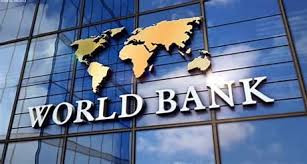The World Bank has issued a stern warning about the rapid rise of extreme poverty in Nigeria, saying the country is now one of 39 economies where conflict and instability are worsening hunger, eroding development progress, and making global poverty targets harder to reach.
In a new report titled “Extreme Poverty is Rising Fast in Economies Hit by Conflict, Instability,” the Bank listed Nigeria alongside countries like Haiti, Syria, Afghanistan, Sudan, Venezuela, and the Democratic Republic of Congo, as part of a fragile and conflict-affected group of economies struggling with deep-rooted challenges since the COVID-19 pandemic.
According to the World Bank, Nigeria’s fragile status is mainly due to persistent insecurity, especially the prolonged insurgency in the North-East and the rising cases of banditry and kidnapping in the North-West. These issues, coupled with economic headwinds, are increasing the poverty burden across the country.
The report revealed that in 2025 alone, more than 421 million people in conflict-affected economies are living on less than $3 per day—more than the rest of the world combined. Since 2020, GDP per capita in these economies has declined by an average of 1.8 per cent annually, while other developing nations have experienced growth of around 2.9 per cent yearly.
Although Nigeria’s overall GDP performance appears better than other fragile states, the World Bank pointed out that the extreme poverty crisis in the country is mostly policy-induced. Particularly, the removal of fuel subsidy in May 2023 and the floatation of the naira in June 2023 have triggered inflation, currency depreciation, and a loss in purchasing power, pushing more Nigerians into poverty.
The impact of these reforms has been severe. In just over two years, the price of petrol has jumped from N187 per litre in May 2023 to about N1,000 per litre in 2025. Similarly, the naira has depreciated from around N450/$1 to over N1,570/$1. While these policies were intended to stabilise the economy, they have caused widespread hardship for the average Nigerian.
An example of this economic strain is the comparison of Nigeria’s minimum wage. In 2023, the monthly wage of N30,000 was worth about $67. Today, the new minimum wage of N70,000 is worth only around $45 due to exchange rate depreciation. That means Nigerian workers are earning less in real value despite nominal wage increases.
A bag of cement that used to sell for N3,000 now sells for over N10,000. A 50-litre tank of petrol that cost N10,000 now requires N50,000 to fill. For someone earning N100,000 monthly, half of their income would now go into just fuelling their car, unlike before when it was just 10 per cent. This clearly shows how Nigerians are being pushed deeper into poverty.
This economic hardship is not just affecting people’s pockets. According to the World Bank’s April 2025 Africa’s Pulse report, Nigeria now has the highest share of extremely poor people in Sub-Saharan Africa, with nearly 20 per cent of the region’s poor population. That translates to about 113 million people living in extreme poverty—out of the 560 million extremely poor people in the region.
The National Bureau of Statistics (NBS) had earlier reported that 133 million Nigerians were living in multidimensional poverty as of 2022. This includes people who are not only income-poor but also lack access to education, healthcare, and basic infrastructure. The current wave of economic reforms appears to have worsened these conditions rather than alleviating them.
The poverty situation has also created a ripple effect in other sectors. Nigeria now has over 25 million people facing food insecurity, according to World Bank estimates. The country also has around 20 million out-of-school children, the highest figure in the world. Additionally, unemployment is widespread, and GDP per capita has declined from an all-time high of $3,136 in 2014 to just $824 in 2024.
Insecurity remains a major concern. The rise in poverty and hunger has created a fertile ground for criminal activities. Terrorist groups, kidnappers, and bandits are finding it easier to recruit young people who are frustrated and jobless. This has further worsened the country’s security challenges.
These realities are a call to action for the Nigerian government. While economic reforms are necessary, experts argue that their design and implementation must focus more on the wellbeing of citizens. Policies that trigger inflation, currency instability, and mass unemployment only deepen the country’s poverty crisis.
Economist John Maynard Keynes once said, “In the long run, we are all dead,” stressing the importance of tackling present problems with practical solutions rather than waiting for long-term gains that may never arrive. The Nigerian government is now under pressure to review and adjust its reform strategies to avoid plunging the country into deeper economic and social instability.
